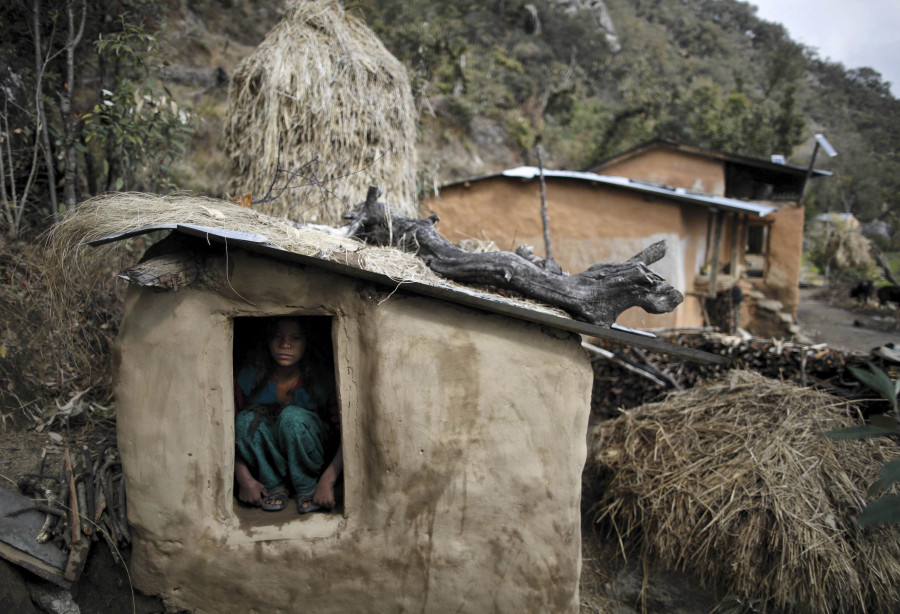Editorial
Inhumane tradition
What's more brutal than a society that remains unmoved by a woman’s death in a menstrual shed?
Nepali women unnecessarily lose their lives in the name of traditions. The most notorious of these is Chhaupadi, a deeply entrenched tradition in western Nepal that forces menstruating women to live in chhau goths (menstrual sheds), cattle sheds, or separate huts, considering them ‘impure’. Even though the Supreme Court outlawed the system in 2005 and a law criminalised it in 2017, imposing a three-month prison sentence and a fine of Rs3,000 or both on the offenders, Chhaupadi remains rampant. It continues to claim the lives of Nepali women, exposing the inefficacy of years of efforts to uproot it.
Since 2005, at least 20 women have died in different districts of Sudurpaschim Province—14 in Achham, two in Doti, three in Bajura, and recently, one in Kanchanpur. A 28-year-old woman who was forced to carry out the ritual in a shed near her home died during treatment after a snake bit her on Friday. Just last year, a 16-year-old girl from Panchadewal Binayak Municipality in Achham district was raped in a shed. Sadly, only some incidents make headlines. Injustices within these sheds are brushed under the rug due to stigma and fear of tarnishing family’s honour. The struggle of living in damp sheds during the monsoon and biting cold, the fear of wild animals, asphyxiation for days at a stretch, psychological stress, as well as the need for care and sanitation during periods, is often overlooked.
We, as individuals and as a society, have failed to accept menstruation as a natural part of women’s biological cycle. Even in the so-called educated families in Nepal’s urban centres, menstruating women are barred from kitchens, worship rooms and other religious activities. A study conducted by the Government of Nepal in 2010 revealed that when 19 percent of women practised chhaupadi in other parts of the country, the figure was 50 percent in the Karnali and Sudurpaschim regions. This tradition is so deeply rooted in people’s minds that efforts such as demolishing menstrual sheds and educating people by the government bodies and international and national organisations are falling short of eradicating it. Local bodies have repeatedly launched campaigns to abolish chhaupadi and demolish huts, only to see them being rebuilt.
Families are letting their daughters and women die in menstrual sheds. A woman died in the recent Kanchanpur case, yet the locals don’t want the tradition to stop, fearing the gods. What’s more, the shed where she died was knocked down only to kill the snake. The tragedy stirred little concern among the community. What could be more pitiful and inhumane than a society that remains unmoved by a woman’s death? This shows that our efforts to stop this social evil are far from adequate.
There is a growing need to sensitise families about the cruelty of the chhaupadi practice and also to make people aware of the legal repercussions, as many are unaware that forcing women to live in sheds is a legal offence. Bringing the violators under the law is necessary to discourage such a practice. Reforms are also possible when women are empowered and educated to act against the tradition. Chhaupadi violates their dignity and universal human rights. No one can put women’s lives at stake in the name of traditions. The state needs to do more to ensure safety and dignity of women.




 9.7°C Kathmandu
9.7°C Kathmandu














